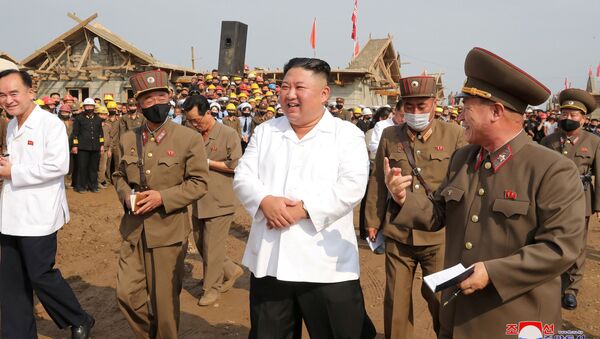The UNSC committee argued on Monday that the DPRK had exceeded its annual 500,000-barrel import limit within the first five months of 2020. The panel also highlighted increased traffic at the Punggye-ri Nuclear Test Site.
“Satellite imagery provided by a member state and information shows that in this period multiple vessels of the Democratic People’s Republic of Korea continued to conduct ship-to-ship transfers in waters of another member state and made deliveries of coal,” the panel said within the midterm report, as reported by the Korea Herald. “The DPRK has continued to earn income from the illicit transfer of fishing rights.”
“Pursuant to paragraph 5 of resolution 2397 (2017), the total supply, sale or transfer of all refined petroleum products by Member States to the DPRK shall not exceed 500,000 barrels, during a period of 12 months beginning 1 January 2019, and for 12-month periods thereafter,” the UNSC website notes.
"The Democratic People's Republic of Korea and foreign-flagged vessels and their owners continued elaborate evasion practices" to illicitly import refined petroleum products, the UNSC said, according to AFP.
The midterm report detailed that the Diamond 8, a Sierra Leone-flagged vessel, sailed north through the Yellow Sea in February and March and stopped at the DPRK’s Nampo to deliver refined petroleum both times. According to the data, the Diamond 8 spent 10 days or more without an automatic identification system signal on both occasions.
The panel concluded that North Korea was carrying out these alleged imports to continue its nuclear program, which includes producing highly enriched uranium and an experimental light-water reactor.
Representatives from Beijing and Moscow dismissed the midterm report, arguing its findings were “based on assumptions and estimations,” AFP reported.
According to Russia, the report compiled by the 43 UN member states “does not provide objective, accurate and verifiable information or have enough solid imagery evidence.”
China added that the report “is neither scientific nor prudent to reach a conclusion that the annual limit has been exceeded based on such estimations.
Earlier this month, the US State, Commerce and Treasury Departments warned that North Korea was using various tactics to work around economic sanctions imposed on the country. The advisory published by the US departments identified “key North Korean procurement entities and deceptive techniques employed in the operation and support of the regime’s ballistic missile program.”


